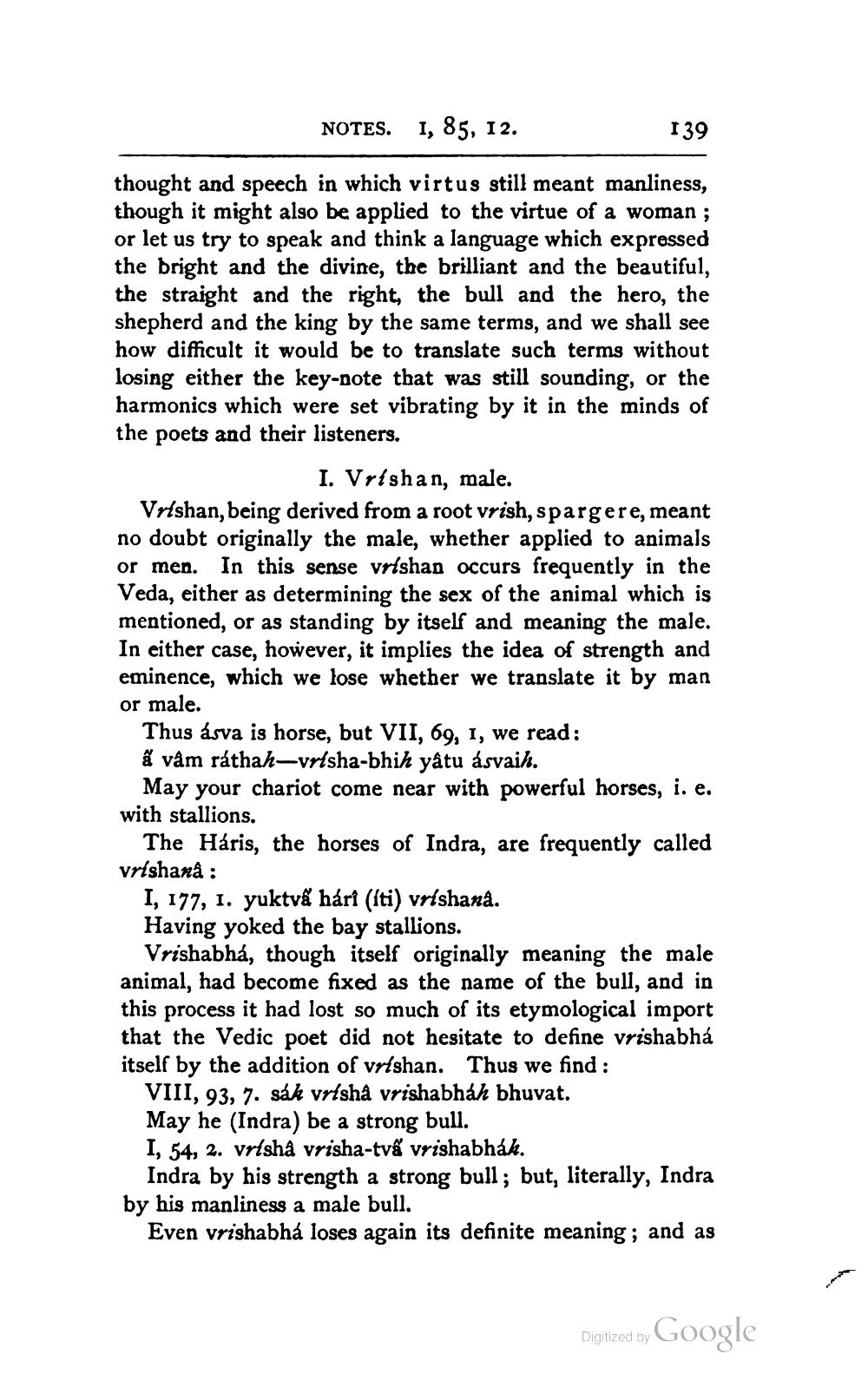________________
NOTES. 1, 85, 12.
139
thought and speech in which virtus still meant manliness, though it might also be applied to the virtue of a woman; or let us try to speak and think a language which expressed the bright and the divine, the brilliant and the beautiful, the straight and the right, the bull and the hero, the shepherd and the king by the same terms, and we shall see how difficult it would be to translate such terms without losing either the key-note that was still sounding, or the harmonics which were set vibrating by it in the minds of the poets and their listeners.
1. Vrlshan, male. Vrlshan, being derived from a root vrish, spargere, meant no doubt originally the male, whether applied to animals or men. In this sense vrlshan occurs frequently in the Veda, either as determining the sex of the animal which is mentioned, or as standing by itself and meaning the male. In either case, however, it implies the idea of strength and eminence, which we lose whether we translate it by man or male.
Thus ásva is horse, but VII, 69, 1, we read: å vám ráthah-vrlsha-bhih yâtu ásvaih.
May your chariot come near with powerful horses, i. e. with stallions.
The Háris, the horses of Indra, are frequently called vrishana :
I, 177, 1. yuktvå hári (Iti) vrlshana. Having yoked the bay stallions.
Vrishabhá, though itself originally meaning the male animal, had become fixed as the name of the bull, and in this process it had lost so much of its etymological import that the Vedic poet did not hesitate to define vrishabhá itself by the addition of vrlshan. Thus we find :
VIII, 93, 7. sák vrlshå vrishabháh bhuvat. May he (Indra) be a strong bull. I, 54, 2. vrlshå vrisha-tvá vrishabhák.
Indra by his strength a strong bull; but, literally, Indra by his manliness a male bull.
Even vrishabhá loses again its definite meaning; and as
Digitized by
Digized by Google




